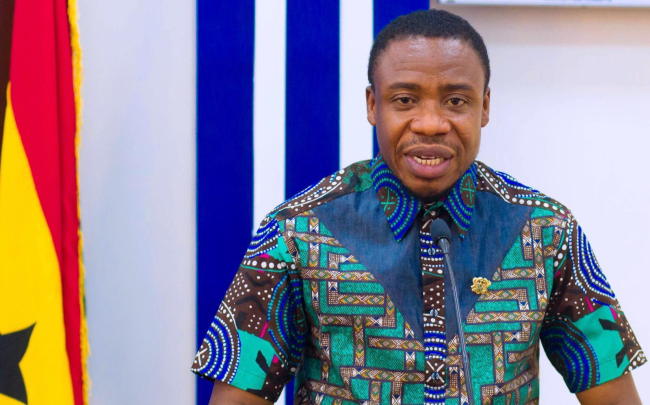The Chief Executive Officer of the National Health Insurance Authority (NHIA), Dr Dacosta Aboagye, has revealed that the Authority will need abou

The Chief Executive Officer of the National Health Insurance Authority (NHIA), Dr Dacosta Aboagye, has revealed that the Authority will need about GHC57 million annually to fund free dialysis treatment.
The NHIA is set to roll out free treatment for dialysis patients from December 1 this year. This means that individuals suffering from renal diseases will receive free treatment, provided they hold an NHIA membership.
Speaking on Joy News’ AM Show on Monday, November 25, Dr Aboagye said, “We can now confirm that the NHIA will need a minimum of about GHC20 million to GHC57 million for this dialysis programme.”
Regarding available funds and sustainability, Dr Aboagye noted that there are sufficient funds to kick start the policy.
“Currently, the Finance Minister has allocated about GHC2 billion for the next three months, which means we are receiving about GHC600 million per month,” he explained.
He is optimistic that the free dialysis programme is sustainable, saying, “There is no problem with sustainability or anything.”
Dr Aboagye added, “In 2025, regardless of the situation, we know that GHC1.3 billion will be coming in. So, with this, we are confident that it is sustainable, and we will be able to fund dialysis, including the provision of equipment.”
According to him, a change of government in 2025 will not affect the programme because it has already been incorporated into the NHIA’s benefit package.
“Once we add it to our benefit package, no one can remove it,” he said, adding, “Our primary aim is to pay claims and look after the vulnerable. So, once we have reviewed the numbers and believe we can fund it, we will be able to fund it… Regardless of the two scenarios, we will have the money to fund it without any problem, and it will be sustained.”
Currently, the cost of dialysis in the country ranges from GHC300 to GHC1,000 per session, and available data suggests that between 13% and 17% of Ghana’s population have some form of renal function impairment. This equates to between 4 million and 5.2 million citizens.
The data indicates that approximately 2,000 people are currently receiving dialysis, meaning between 13,000 and 17,500 people are without treatment.
These individuals often seek alternative forms of treatment and access renal care only when the situation becomes acute. This negatively impacts their quality of life and life expectancy.
Vice President Dr Mahamudu Bawumia, who is seeking to become the substantive president, has promised to provide free dialysis treatment to patients.
He earlier announced that the NHIA would begin the programme on December 1. According to him, the new free dialysis policy reflects his government’s commitment to improving the well-being of citizens suffering from renal diseases.
The pilot programme was launched earlier this year for patients over 60 and under 18 years of age.
Meanwhile, John Mahama of the NDC, who is seeking re-election, has promised to establish modern dialysis centres in regions that do not currently have one. The former president stated that the decentralisation of these centres would improve access to treatment.
Available data indicates that approximately 2,000 people are currently receiving dialysis in the country.
These individuals often seek alternative forms of treatment and access renal care only when the situation becomes acute. This negatively impacts their quality of life and life expectancy.